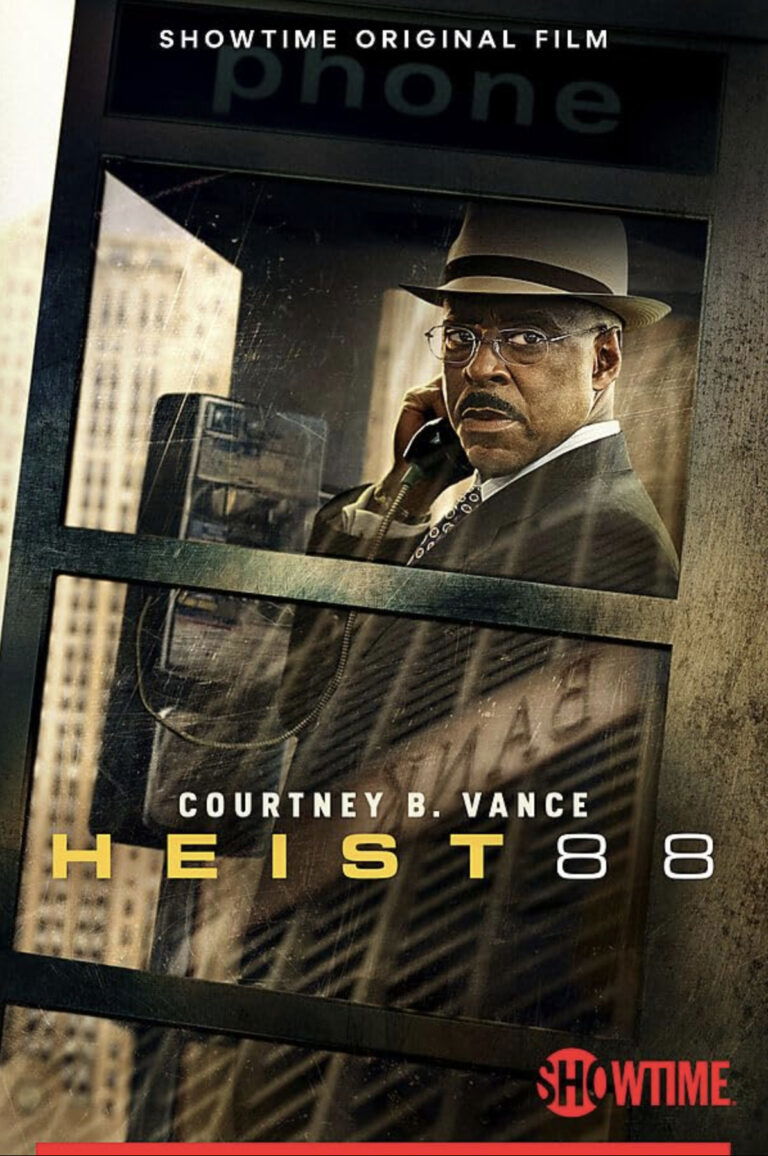"Unremarkable and Unacceptable"

| None | Light | Moderate | Heavy | |
|---|---|---|---|---|
| Language | ||||
| Violence | ||||
| Sex | ||||
| Nudity |
What You Need To Know:
HEIST 88 strips the heist film genre of most of what makes it fun. There’s no swashbuckling romanticism, no thriller-esque tension, and the lukewarm attempt at an underdog story is barely believable. It is thoroughly unsatisfying and boring. The moral worldview of the characters is atrocious. For example, the co-conspirators justify their greed by upholding the fundamental belief that, because of the black people’s struggles in the United States, they have the moral right
to steal lawfully owned money from other citizens. Consequently, they shouldn’t feel bound to the same legal constraints other people are. HEIST 88 is unremarkable and unacceptable.
Content:
More Detail:
HEIST 88 is loosely based on the true story of one of the biggest attempted bank heists in American history, the 1988 robbery of the First National Bank in Chicago that was executed exclusively over the phone. Though the movie takes numerous liberties and changes the names of all of the individuals involved, the gist of the robbery remains the same. A criminal mastermind recruits a small group of bank employees to impersonate corporate executives and transfer tens of millions of dollars out of the accounts of three major companies. Jeremy Horne, the fictional thief, and his accomplices successfully steal $80 million and try to flee to Europe to withdraw their spoils, but one of the inside men gets cold feet and reports them to the FBI. Horne defiantly refuses to show remorse for his actions, concluding the movie, “I am only guilty of getting caught,” before facing, presumably, a very lengthy prison sentence.
HEIST 88 strips the heist film genre of most of what makes it fun. There’s no swashbuckling romanticism, no thriller-esque tension, and the lukewarm attempt at an underdog story is barely believable. From the first moment Horne describes the plan to clear three separate multimillion dollar fraudulent bank transfers relying solely on the quality of his accomplices’ voice impressions and the hope that no one at the bank will notice, the viewer has no reasonable belief that the job MIGHT work. From that point, the audience waits for them to fail, which robs the story of any narrative tension and any real jeopardy. Most of the reason why a great heist film like OCEAN’S ELEVEN works is that the audience is able to simultaneously maintain the belief that the crew might pull the robbery off, and the doubt that they also might get caught and spend
the rest of their lives in prison. That tension isn’t present in HEIST 88, making it thoroughly boring and unsatisfying.
There is a commendable lack of objectionable or immoral content in HEIST 88, aside from a handful of swear words. However, the moral worldview of the characters is atrocious. For example, the co-conspirators share the belief that, because of black people’s struggles in the United States, they have the moral right to steal lawfully owned money from other citizens; and, they shouldn’t feel bound to the same legal constraints other people are. In reality, this thinking is only a justification for their greed and baser impulses, but it’s never condemned or shown to be incorrect in the story. To the last line of the movie, Horne is unrepentant and seemingly lacking comprehension of the difference between right and wrong.
HEIST 88 is unremarkable and unacceptable.



 - Content:
- Content: 